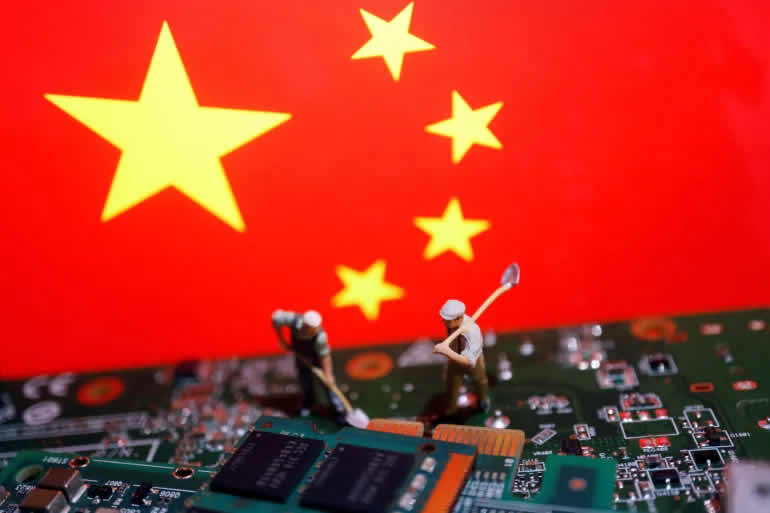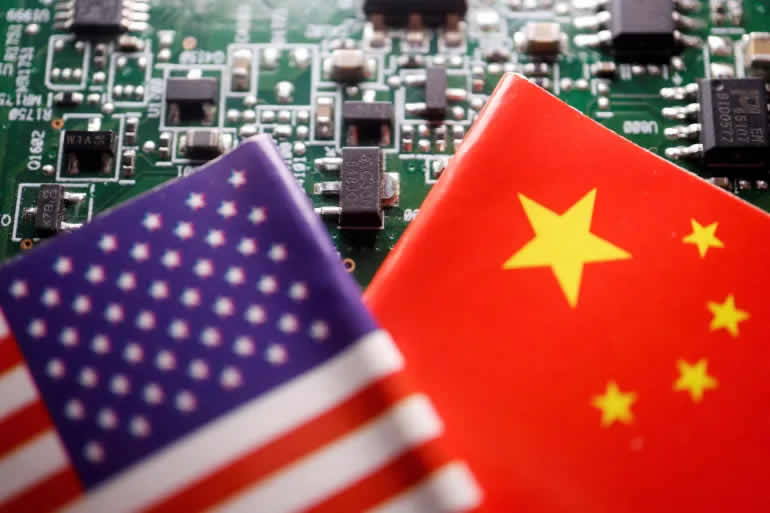Is the U.S. Handing Over the Global Chip Market to China?

The administration of U.S. President Donald Trump is attempting to restrict exports of strategically important computer chips to China. However, experts warn that these efforts may backfire, potentially fueling innovation among Chinese companies and helping them dominate the global semiconductor industry.
According to AFP, Jack Gold, an analyst at Jay Gold Associates, stated: “The reality is that the U.S. government is pushing China’s chip business forward and handing China a massive victory.”
He added, “Once they become competitive, they’ll start selling globally, and people will buy their chips.” Gold warned that once this happens, it will be very difficult for U.S. chipmakers to regain lost market share.
Economic Consequences
Leading U.S. semiconductor company Nvidia and its rival AMD have both informed regulators this week that they expect to suffer significant financial losses due to new U.S. licensing requirements for exporting semiconductors to China.
According to filings with the U.S. Securities and Exchange Commission, Nvidia expects to lose $5.5 billion due to the new rules, while AMD estimates its losses could reach as much as $800 million.
U.S. officials have already informed Nvidia that it must obtain a license to export its H20 chips to China, citing concerns that such chips could be used in China’s supercomputers.
The U.S. has already restricted exports to China of advanced GPUs used to run top-tier AI models. China is the world’s largest buyer of chipsets.
Jay Gold Associates reported that Nvidia specifically designed the H20 chip for the Chinese market, aiming to optimize performance while still complying with previous U.S. export restrictions. However, the new licensing requirements pose a new hurdle.
According to filings, AMD is also affected. The U.S. measures now apply to its most advanced MI 308 GPU, designed for high-performance applications such as gaming and AI. The company admitted it cannot guarantee approval for export licenses to China.
A Golden Opportunity for China

Independent tech analyst Rob Enderle predicts that Chinese chipmakers — likely led by tech giant Huawei — will intensify their efforts to capture more market share.
Speaking about the tighter U.S. export rules, Enderle said, “This will be a godsend for China to ramp up microprocessor activity.” He added, “It’s a very fast track for the U.S. to give up its lead in cutting-edge microprocessors and GPUs.”
Gold noted that the Chinese government has both the resources and motivation to aggressively develop its chip sector. He also criticized Trump’s approach, stating, “Trump thinks he can bully others into doing what he wants, but that’s not how the global economy works.”
He emphasized that Trump’s tariff policies have alienated U.S. allies, giving them more reason to turn to Chinese chips.
Enderle concluded, “This will pose a real problem for U.S. company competitiveness.” Companies based overseas will suddenly find themselves in a more favorable position.
Nvidia CEO Jensen Huang has publicly stated that his company — one of the most powerful AI chip firms — is able to comply with new U.S. requirements without sacrificing technological progress. He added that nothing can stop global advancement in AI.
Wedbush analyst Dan Ives wrote in a note to investors, “In this U.S.-China chess match, Nvidia is one of the most important pieces on the board.” He pointed out, “The Trump administration knows there’s only one chip company driving the AI revolution, and that’s Nvidia,” and they are trying to slow down China’s progress in this field.
However, Ives warned that the chip war is far from over and predicted, “The battle will continue on both sides.
